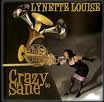When my teenage sons turn their music up in an attempt -- I
believe -- to share it with the folks on Mars, I admit to a desire to hide in
the closet with earmuffs and a coffee.
When I'm in a roomful of strangers and their interests are beyond the
scope of mine, I admit to a strong inclination to hide in my car and read until
the function is over. Given the
opportunity to sip coffee with a friend, stranger or family member I promise
that parenting and relationships in general will be my attempted topics
introduced, every time, with passion and
a desire to keep the coffee flowing and conversation never ending.
I have just exampled the three markers that an individual
must hit in order to be labeled as on the spectrum of autism. I even wrapped in a fourth common autism
trait. However, I am not autistic.
How is that?
I will happily explain.
The three markers one must hit to be labeled autistic are: communication
disorder, social interaction disorder and repetitious behavior. A third that many experts, including global
autism expert and author Lynette Louise,
feel could be added to the list is a sensory integration disorder. "I have, so far, never met an autistic person
who did not have sensory integration issues", Lynette mentioned during her
podcast A New Spin on Autism: Answers.
So if I hate loud music (sensory), want to hide in my car
from uninteresting strangers (social), only want to talk about my kids and what
they've taught me (repetitious) and feel confused or bored when the
conversation heads into territory out of my scope of interests (communication),
why aren't I autistic? Quite simply,
because according to the Brain
and Body website, a site dedicated to sharing facts related to autism and
neurofeedback, "autism is a developmental, whole brain disorder'.
Quirky tendencies do not make our lives very challenging. Rather they offer opportunities to discover
our passions, our "niches'. However, a
developmental disorder saddles us with challenges that make interacting with
the world extremely difficult, often painful and sometimes nearly
impossible.
According to Lynette Louise, who is a neurofeedback
specialist and brain expert, looking at the EEG of an autistic child or adult
VS that of a quirky-normal one, has some very telling differences.
According to Lynette, "The brains of autistic individuals
tend to have a brain wide excess of delta--low frequency--activity which often
correlates to toxin or trauma damage."
She goes on to explain, "As the individual receives instructions that
teach and change the brain (like biofeedback and/or behavioral drills for
skills), some of this excess delta recedes and excess beta --higher
frequency--replaces it. It's like going
from one problem to another. In my
experience, this emerging beta excess is especially true in the temporal lobes
and sensorimotor strip." When asked if
the EEG can then be used to diagnose autism Lynette explained that
unfortunately, even though these are observations of difference as compared to
a neuro-typical brain, these differences don't always mean the owner of the
brain is autistic. A brain wide excess
of delta can accompany other disorders like Cerebral Palsy or extreme Attention
Deficit Hyperactivity Disorder, Global Delay and more. In other words, without a behavioral
assessment an autism diagnosis can't be made.
But, again, the EEG is telling. There
are other anomalies common, though not consistent, in an autistic brain as
compared to a neuro-typical one.
Anomalies like a tendency towards hyper and hypo connectivity between
brain regions. To be more specific, the
occipital and frontal lobes--front and back of the brain--are often hypo
connected while the temporal regions--sides above the ears--can be hyper
connected. So, although each ASD
individual is dramatically different in the specifics of their EEG anomalies,
some "similar eccentric brain wave tendencies" do exist within the population.
Perhaps because autism is a spectrum disorder, and most
certainly due to its epidemic rise in recent years (from 4 in 10,000 in 1985 to
60 in 10,000 in 2010) the validity of autism -- especially the higher
functioning types-- has come into question.
Having lived as a sibling of autistics myself, I'll admit I was
surprised to learn that there is a
question. However, the more I looked
into it, the more I could see how people justified this skepticism. Movies like "Silent Fall' lead people to
believe that if given the right dose of medication or the right amount of
psychological intervention these kids can be "unlocked' and "get better'. If this were the case then it would seem
autism is not much different than Post Traumatic Stress Disorder or
Depression. On the flip side, many
people suggest that almost anyone is diagnosable as on the spectrum of autism
if asked the right questions; that we all have a little sensory issue here and
there, some social skill difficulties and a habit or two.
I suppose it's true that they may be able to find someone to
diagnose them, but without hitting all of the markers to a disabling degree,
they are not autistic. Just quirky.
Neither one is good or bad.
They just are.




